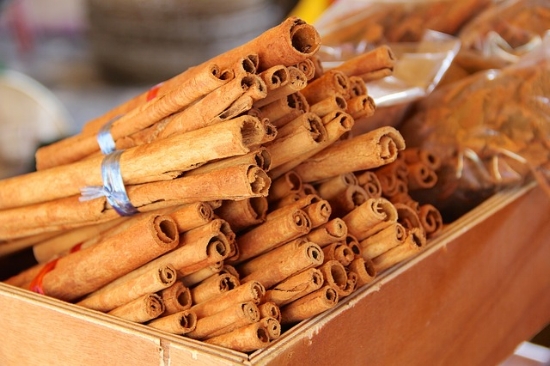Cinnamon has the highestanti-oxidant strength of all the food sources in nature!
1/4 tsp. of Cinnamon provides 1/4 of the antioxidants you need in a day.
Although there are four main varieties of cinnamon, Ceylon cinnamon and Cassia cinnamon are the most popular. Ceylon cinnamon is sometimes called true cinnamon. It is more expensive and has a sweet taste. Ceylon cinnamon is sold in specialty stores. Most cinnamon sold in supermarkets in North America comes from the less expensive variety, Cassia cinnamon.
In traditional Chinese medicine, Cassia cinnamon is used for colds, flatulence, nausea, diarrhea, and painful menstrual periods. It's also believed to improve energy, vitality, and circulation and be particularly useful for people who tend to feel hot in their upper body but have cold feet.
In Ayurveda, cinnamon is used as a remedy for diabetes, indigestion, and colds, and it is often recommended for people with the kapha Ayurvedic type.
- The active compounds in cinnamon are known to have anti-diabetic, anti-septic, local anesthetic and anti-inflammatory properties.
- Cinnamaldehyde in cinnamon-sticks has been found to have anti-clotting action, and may help prevent stroke and coronary artery disease.
- This spice may increase the motility of the intestinal tract.
- It contains vitamin A, niacin, pantothenic acid, and pyridoxine.
- Cinnamon is an excellent source of flavonoid phenolic anti-oxidants.
Cinnamon may help or treat:
- Type II Diabetes
- Heart Disease
- Ulcers
- High Blood Pressure
- Stroke
- Polycystic ovarian Syndrome
- Yeast infections
- Food Poisoning
Sprinkle on toast, cereal, soups, and berries. Add to stews and rice dishes.
~ Tastefully yours ♥
